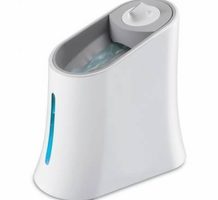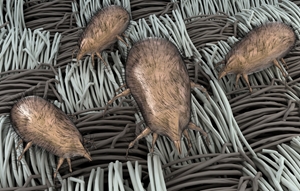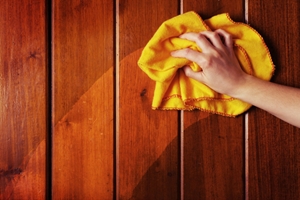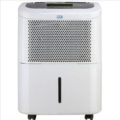
If you've ever had a cold you may have been told to run a humidifier in your bedroom at night. According to the Mayo Clinic, humidifiers can help improve symptoms like coughing and congestion. When relative humidity falls below 30 percent, mucous membranes become dry. You might experience nosebleeds, dry mouth, chapped lips and flaky skin.
A humidifier restores much needed moisture to the air, easing your symptoms and allowing you to sleep better. Humidifier use is appropriate in many places in the United States during the winter. Some people, especially those with chronic respiratory illnesses like asthma or those living in a very dry climate, can even benefit from running a humidifier year-round.
However, sometimes a humidifier can work against you. In fact, if you have indoor allergies, you may be better served by running a dehumidifier. According to the American Academy of Allergy, Asthma and Immunology (AAAAI), the dust mite is the most common indoor allergen. Dust mites are tiny microscopic bugs that thrive in the warm, humid environments that are created by humidifiers. Mold is another trigger for many asthma and allergy sufferers that can be made worse by these devices. If you do use a humidifier, be sure to regularly clean and change its filter to prevent mold growth inside the device.
The AAAAI recommends buying a hygrometer to regularly measure the humidity level in your home. If the level falls below 30 percent, run your humidifier to restore moisture to the air. If it exceeds 45 percent, try using a dehumidifier to discourage dust mite and mold activity, thus improving your allergy symptoms. Running an air conditioner will also help control temperature and humidity levels during the hot summer months.
For improved allergy control, shop Allergy Be Gone's website for hygrometers, humidifiers and dehumidifiers today!









